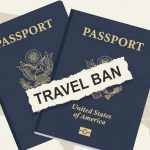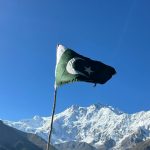In a world where the concept of sovereignty and self-determination continues to evolve, the Empire of Atlantium stands out as a fascinating experiment in governance, identity, and nationhood. Founded not on war or conquest, but on ideals and innovation, Atlantium is one of the most prominent and enduring examples of a micronation – a self-proclaimed entity that claims to be an independent sovereign state but is not recognized as such by world governments or major international organizations.
Origins and Founding
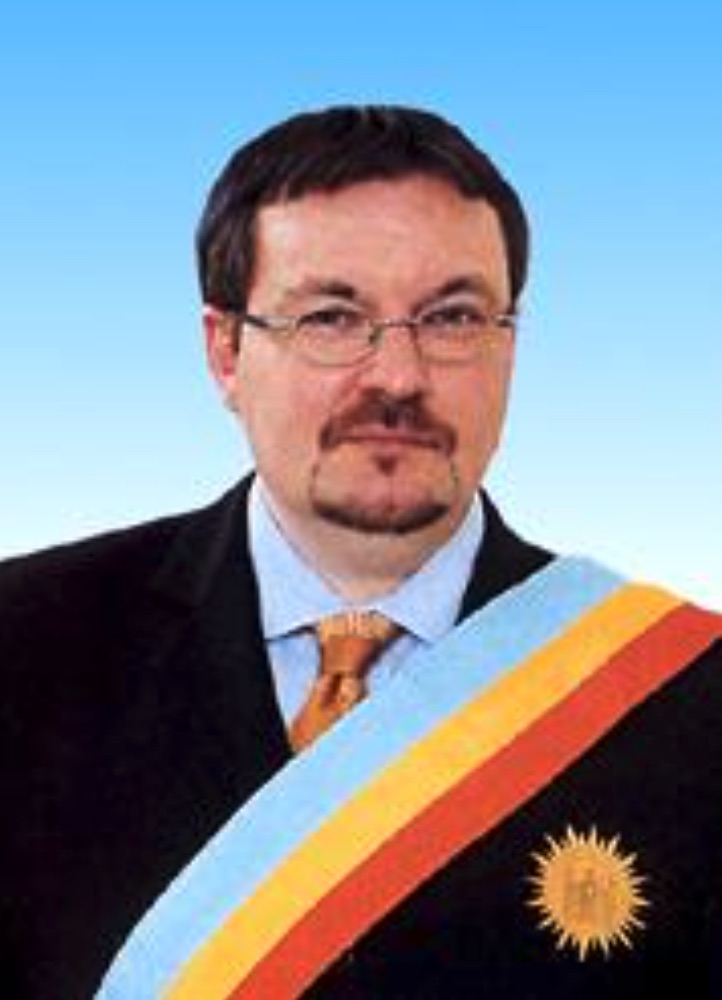
His Imperial Majesty, Emperor George II (Image: atlantium.org)
Atlantium was established in 1981 by George Francis Cruickshank II, who now styles himself as Emperor George II, alongside two school friends in Sydney, Australia. The idea began as a creative response to the perceived limitations of traditional national systems and the bureaucracies surrounding them. Over time, what began as a teenage venture evolved into a serious social and political project, aiming to promote global citizenship, liberalism, secularism, and universal human rights.
Despite its satirical undertones, Atlantium’s political and philosophical goals are sincerely held, and its founders emphasize the Micronation’s role as a platform for the expression of progressive ideals. Watch video on Welcome to Atlantium.
hilosophy and Ideals
Atlantium is centred on the concept of universal citizenship—the idea that individuals should not be confined by arbitrary national borders. It promotes a form of enlightened globalism, advocating for:
- Secular humanism
- Individual liberty
- Freedom of movement and residence
- Scientific progress and rationalism
In contrast to many Micronations that are monarchist or feudal in nature, Atlantium combines imperial symbolism with progressive, democratic values, creating a unique ideological blend. Its imperial structure is largely ceremonial, designed to evoke grandeur and a sense of historical continuity while simultaneously challenging traditional ideas of sovereignty. Website for the Empire of Atlantium.
Territory
Atlantium claims three separate territories in Australia, the most prominent being the Province of Aurora, a 0.76-square-kilometer plot of land located near the small rural town of Nerriga in New South Wales. Aurora functions as the Micronation’s capital and is home to various official buildings and monuments, including the Imperial Administration Building and Victory Square.
While Atlantium has no permanent population living on its territory, the land serves symbolic and ceremonial purposes, much like the Vatican City does for the Catholic Church.
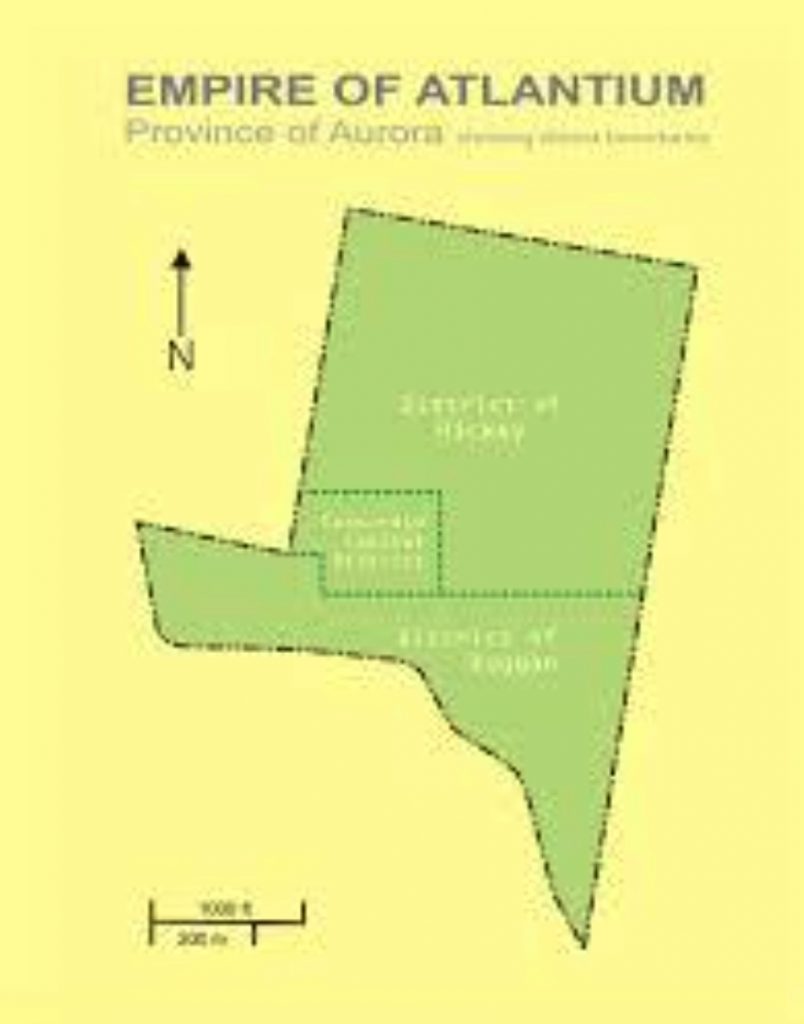
Map of the Empire of Atlantium’s Province of Aurora, 310 kilometres (193 miles) south-west of Sydney.
Government and Administration
Atlantium is structured as an elective constitutional monarchy with Emperor George II serving as the head of state. The government includes:
- The Imperial Senate, an advisory body
- Various ministries (e.g., the Ministry of State, Ministry of the Treasury)
- An elaborate civil service structure
All administrative positions are largely symbolic and are filled by members of the global Atlantium community. Citizens are encouraged to participate in elections and government functions through digital platforms, underscoring Atlantium’s nature as a virtual nation.
Citizenship and Symbols
Atlantium boasts over 3,000 citizens from more than 100 countries, all of whom can apply online. Citizenship costs US$25 and open to anyone who agrees with the Micronation’s values. The process is quick and includes the option to buy desk flags, lapel pins, motor vehicle licence plates, coins, currency, and stamps.
The empire has its own national symbols, including its own flag, coat of arms, and anthem. These elements are used in ceremonies, official documents, and diplomatic interactions with other Micronations and global citizens. The two official languages of Atlantium are Latin and English; with Arabic, Hindi, and Mandarin being designated “languages with special status“, as significant Empire citizens speak these languages.
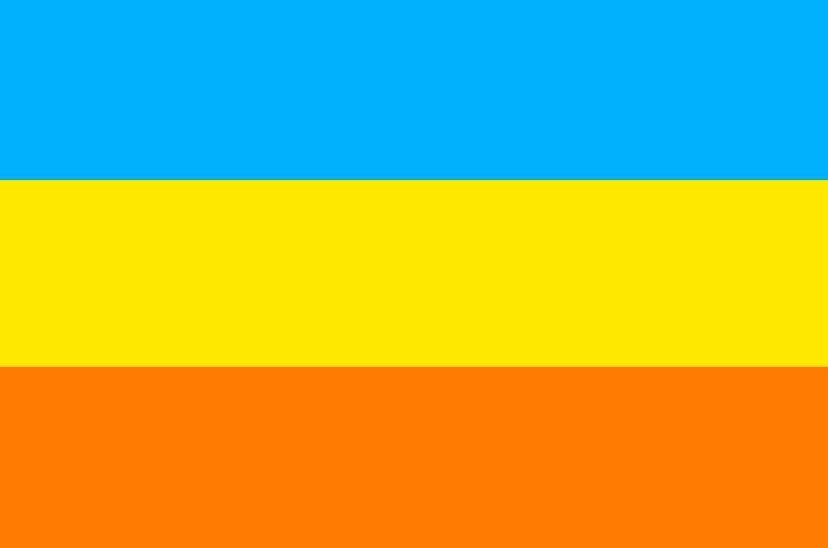
Flag of Atlantium – features three horizontal bands: orange at the bottom, gold in the middle, and azure blue at the top. These colours are said to represent hope in the future, manifested in the colours of a dawn sky.
Recognition and Diplomatic Relations
Like most Micronations, Atlantium is not officially recognized by any United Nations member state. Nevertheless, it maintains informal relations with other Micronations and occasionally engages in symbolic diplomacy.
Atlantium distinguishes itself by not necessarily seeking traditional recognition; instead, it focuses on functional sovereignty – demonstrating that a state can operate without needing external validation.
Atlantium in Popular Culture
Over the years, Atlantium has gained media attention, appearing in documentaries, books, and academic articles. Its unique blend of satire, activism, and genuine nation-building has intrigued scholars of political science, sociology, and international law.
The micronation has been featured in:
- TV documentaries such as How to Start Your Own Country (BBC)
- The book Micronations: The Lonely Planet Guide to Home-Made Nations
- Various news articles and podcasts examining alternative governance

Atlantium Stamp, Coin, & Banknote
Final Thoughts
The Empire of Atlantium represents a bold and thought-provoking experiment in self-determination and global citizenship. It challenges conventional ideas about statehood, legitimacy, and the power of ideas in shaping our world. In an age where identity, mobility, and governance are being reimagined, Atlantium offers a glimpse into the possibilities of borderless society—a place where anyone, anywhere, can belong.
=======================================================================
Difference between a Micronation and a Microstate
A Micronation is a political entity that claims to be an independent nation or sovereign state, but which lacks legal recognition by any sovereign state, often characterized by small size and a lack of international recognition. Micronations are self-proclaimed entities that assert their sovereignty as independent states, but are not recognized as such by any recognized sovereign state or supranational organization – examples being Principality of Hutt River, Republic of Uzupis, Liberland, Christiania, Conch Republic, Molossia, Talossa, Zaqistan, and Ladonia. Micronations differ from Microstates which are internationally recognized as a sovereign state that is very small in area, population, and/or economic resources – commonly accepted examples include Andorra, Liechtenstein, Monaco, San Marino, and Vatican City. While small, Iceland, Malta, and Luxembourg are not typically considered Microstates because they have populations and land areas that surpass the size thresholds commonly used to define Microstates.
======================================================================



